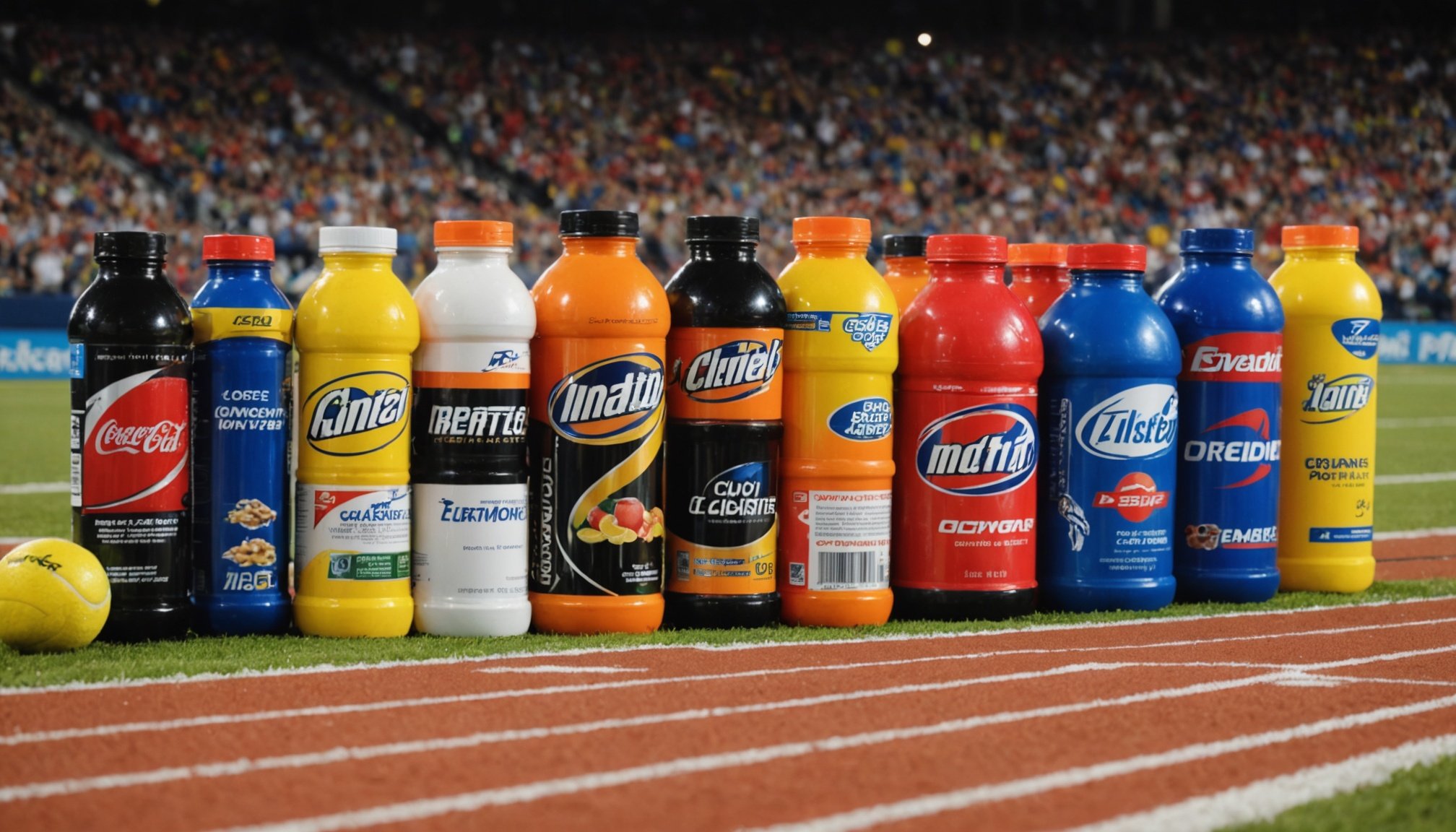The Importance of Sports Nutrition in Athletic Performance
In the competitive world of athletics, sports nutrition is pivotal to athletic performance and achieving competitive success. Athletes rely on nutrition to fuel their bodies, impacting energy levels, recovery times, and endurance capacity significantly. Consuming the right balance of nutrients can enhance endurance, allowing athletes to sustain performance over extended periods.
Macronutrients—comprising carbohydrates, proteins, and fats—play crucial roles in athletic performance. Carbohydrates act as the primary energy source during high-intensity activities. Proteins are essential for muscle repair and growth. Fats provide a concentrated energy source, suitable for low to moderate intensity activities.
This might interest you : Unleashing velocity: essential breathing strategies for swimmers to reduce drag and enhance speed
Furthermore, key vitamins and minerals are indispensable for maintaining an athlete’s health. For instance, vitamin D aids in bone health and immune function, while iron is vital for oxygen transport in the blood. Proper hydration and electrolyte balance are also crucial, affecting muscle contractions and endurance.
By understanding and incorporating appropriate sports nutrition, athletes can optimize their performance and achieve greater competitive success. Fueling the body with the right nutrients is not just about excelling in competition, but also about sustaining long-term health and productivity.
In parallel : Protecting dancers: key conditioning strategies to avert overuse injuries
Essential Nutrients for Athletes
Athletes require a balanced mix of essential nutrients to maintain peak performance. Key among these are macronutrients and micronutrients, each serving unique purposes in the body.
Carbohydrates act as an athlete’s main energy source. They break down into glucose, providing the fuel needed for both intense and endurance activities. It’s crucial for athletes to consume sufficient carbohydrates before a workout to maximise performance and energy reserves.
Protein plays a pivotal role in muscle repair and growth. Consuming adequate protein supports the recovery process by repairing tissues damaged during exercise. It is especially vital after workouts, aiding in the rebuilding of muscle fibres and overall muscle development.
Fats are often overlooked but are critical for sustained energy release. They provide a prolonged fuel source, important for endurance events when glycogen stores are depleted. Healthy fats, such as omega-3 and omega-6 fatty acids, also support overall health, promoting improved cardiovascular functions.
Understanding the balance between different macronutrients and micronutrients empowers athletes to tailor their diets to their specific energy and recovery needs. Achieving this balance is crucial for optimising performance and maintaining health over time.
Strategies for Effective Meal Planning
Navigating the essentials of meal planning forms a crucial part of an athlete’s routine. Precision in nutrition supports not only performance but also recovery.
Designing a Pre-Competition Meal
Creating the optimal pre-competition meal is essential in any sports diet. The best meals are generally those that provide a good mix of carbohydrates and proteins, consumed 3 to 4 hours before an event. This combination fuels muscles and maintains energy levels. Incorporating easily digestible foods minimizes digestive stress, allowing athletes to focus on the competition with confidence.
Balanced Post-Workout Recovery Meals
After intense workouts, proper recovery meals can enhance muscle healing and replenish energy stores. Combine lean proteins and carbohydrates for an effective recovery strategy. Including foods like grilled chicken with quinoa or a fruit smoothie with yogurt can be both beneficial and rewarding.
Daily Nutrition Guidelines for Athletes
- Nutrition strategies that sync meal timing with training schedules significantly bolster athletic performance.
- Emphasize nutrient-dense foods like leafy greens, whole grains, and lean proteins.
- Maintaining a balance between calorie intake and expenditure helps sustain energy levels and support overall health.
These tailored strategies ensure that athletes optimize their diets for peak performance, efficiency, and recovery.
Hydration and Performance
Hydration plays a crucial role in athletic performance, impacting stamina, strength, and endurance. Without adequate fluid intake, dehydration can set in, leading to significantly reduced physical capacities. Athletes often experience fatigue more quickly and are at risk of injury due to impared muscle function.
Ensuring appropriate daily water intake is crucial to maintaining optimal fluid balance. The precise amount of water required can vary based on individual needs, but general guidelines suggest athletes should consume about 3.7 litres for men and 2.7 litres for women daily. Adjustments should be made depending on factors like climate and exercise intensity.
A vital component of maintaining hydration is the balance of electrolytes. During intense training and competitions, sodium, potassium, and other electrolytes are lost through sweat. This can lead to imbalances that further hinder performance and potentially cause health issues like cramping or dizziness. Ensuring a diet rich in these essential nutrients, or consuming specialized sports drinks during extended physical activity, can help maintain this crucial balance.
Understanding these elements can empower athletes to optimize their performance through better hydration strategies.
Scientific Studies Linking Nutrition to Performance Outcomes
Understanding the role of nutrition in athletic performance is crucial for enhancing sports outcomes. Several performance studies have highlighted the impactful connection between diet and athletic success. These sports nutrition research projects provide robust evidence to guide coaching strategies.
One key study demonstrated that athletes who followed evidence-based nutrition guidelines experienced improved muscle recovery and increased endurance. The findings emphasised the importance of nutrient timing and balanced macros in performance success. Researchers found that consuming carbohydrates and proteins post-exercise significantly reduced muscle soreness and optimised repair.
Another noteworthy investigation delved into the effects of specific dietary interventions on overall athletic outcomes. Athletes adhering to a tailored nutrition plan showcasing high antioxidant foods showed a marked decrease in oxidative stress, leading to enhanced recovery rates and reduced injury risk.
These findings hold significant implications for coaching and training programs. Implementing evidence-based nutrition strategies could lead to improved performance metrics and better athlete health. Coaches are encouraged to incorporate these insights into training regimes, emphasising sustainable, natural food sources as key components for achieving athletic excellence.
Real-Life Examples of Successful Athletes and Their Nutrition Regimens
In the world of sports, understanding the role of nutrition is key to achieving performance excellence. Many athletes strive for greatness, but only a few truly master the art of adapting their diet to suit their specific needs. By reviewing relevant athlete case studies, we can glean insights into how they reach peak performance through tailored nutritional plans.
For instance, let’s consider Tom Brady, renowned for his nutritional success. His diet is meticulously constructed, emphasizing organic produce, lean proteins, and whole grains. Such a diet helps maintain his energy levels, which has been pivotal in his sustained performance at an elite level past the age when many athletes retire from professional play.
Additionally, Serena Williams exemplifies how an individualized nutrition plan can bolster performance. Her regimen focuses on plant-based options, such as smoothies and salads, ensuring optimal energy and recovery post-training. Such examples underscore the importance of customizing dietary plans in alignment with specific athletic goals.
Exploring these athlete case studies not only highlights the diversity in nutritional approaches but also the critical role of personalized diets in achieving performance excellence. Athletes’ triumphs with nutrition underscore its indisputable impact on reaching their full potential.
Common Misconceptions About Nutrition in Sports
Misunderstandings surrounding athlete nutrition are widespread. One prevalent myth is that “carb-loading” is essential before every athletic event. While carbohydrates are crucial for energy, excessive consumption before a short race or event might not provide the performance boost anticipated. Instead, a balanced approach tailored to the event’s specific energy needs is more effective.
Next, let’s clarify the role of supplements versus whole foods. Many athletes believe they must rely heavily on supplements to enhance performance. However, whole foods often offer more complete nutritional benefits, providing essential vitamins, minerals, and fibres often missing in supplements. Supplements are best used to fill potential nutritional gaps rather than replace food.
Another misconception is the belief that all fats are unhealthy for athletes. In reality, healthy fats play a necessary role in the diets of athletes by providing a concentrated energy source, aiding in the absorption of fat-soluble vitamins, and offering anti-inflammatory benefits. Foods like avocados, nuts, and olive oil can enhance an athlete’s diet when consumed in moderation. Dispelling these nutrition myths leads to better diet practices, promoting both performance and overall health.











